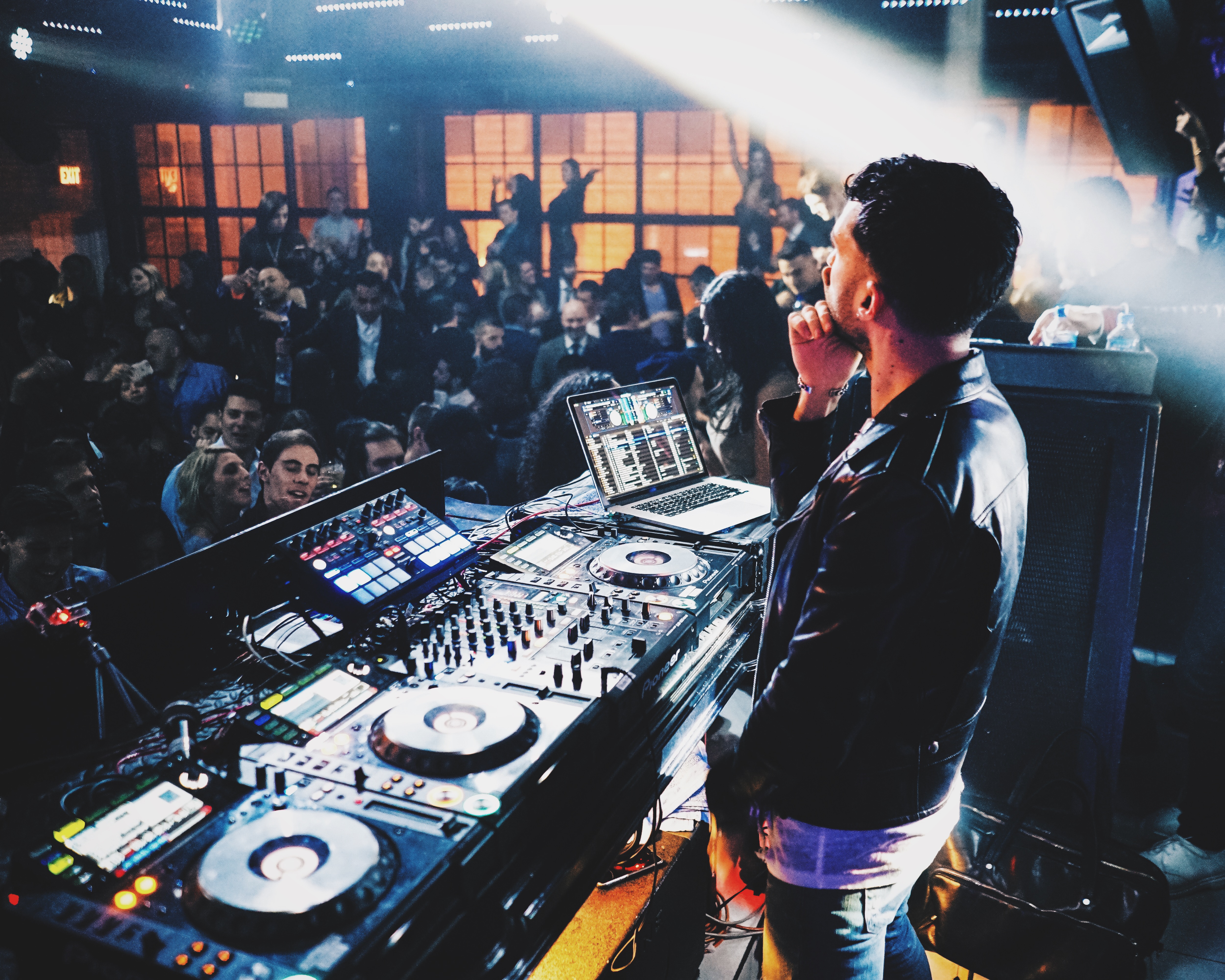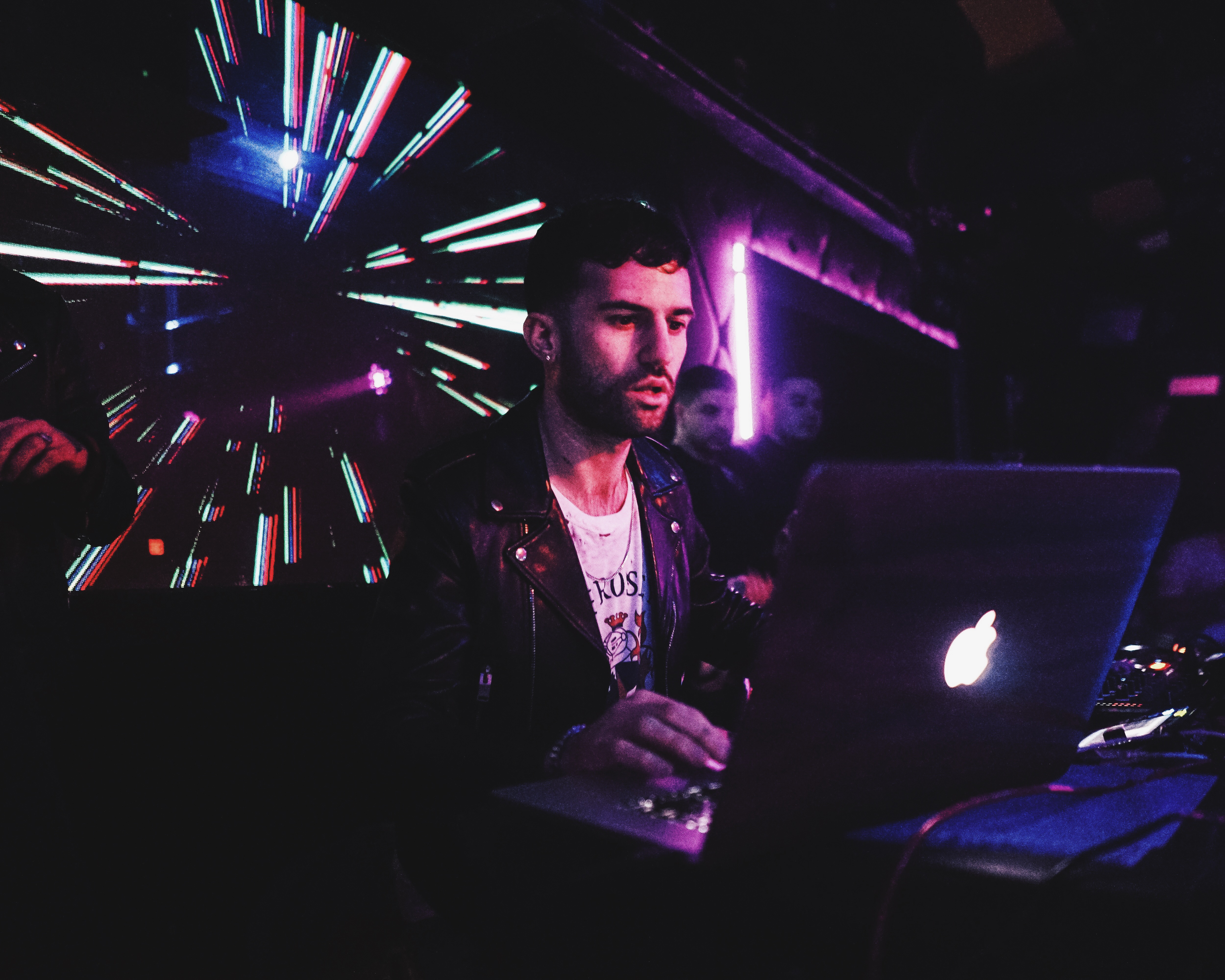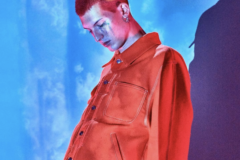Producer, businessman, EDM producer, and DJ hero A-Trak has only seen his success snowball over the last decade. With an ear attuned to trends and the evolution of hip-hop and dance music alike, he long ago transcended his status as a turntable wizard, shifting into production — working with everyone from house producer Armand Van Helden to trap beatmaker Lex Luger — and business, helming the influential Fools Gold record label.
A-Trak will be headlining the #FourLoko After Party at Moonlight Studios in Chicago on July 30. Also known for their wildly successful Fat Jew IRL tour with Dillon Francis, @FourLoko’s lineup of heavy-hitters for the event also includes Major Lazer’s Jillionaire and AraabMuzik. SPIN spoke with A-Trak prior to the show, tackling the ins and outs of A&R, the Blog House revival, and how he juggles so many jobs and genres.
Tell me what you’ve been working on lately. What have you been up to the past couple months?
I’m working on the next couple singles. The one that came out most recently is “Parallel Lines” with Phantogram. I have a couple follow-ups to that. That has been the focus of my music the last year and a half, two years, getting more of these A-Trak records out. For awhile I was doing a lot of Duck Sauce and a lot of one-off collaborations. But now we’re doing more of a stream of my own songs. I’ve been finishing the next three. Constantly touring, and a lot of Fools Gold projects. Fools Gold Day Off is one of the biggest things we do with the label, and we’ve been in the middle of announcing the streaming event. That’s been a big part of what I’ve been doing is putting those lineups together. I have my team that puts together the back end of the event but as far as the bookings I get very involved with that.
Let’s talk about your production a little bit. You talked about the difference between the Duck Sauce stuff and the solo stuff. What differentiates an A-Trak solo record from your group projects? I have a sense of what sounds like A-Trak. I’m not sure how to describe it. All my rap stuff is under the project Low Pros, which is a bit more of a collaboration project with a bunch of producers. It started with me and Lex Luger; I’ve done a bunch of stuff with Metro Boomin, Sonny Digital, and some of those guys. It just keeps evolving. That stuff I do, for the most part, goes into the Low Pros project. Lex Luger and myself also produced the new GOOD Music song, “Champion,” the one with Kanye and Gucci and all those guys. The A-Trak records, there’s a little bit of an indie sensibility to house music. Duck Sauce is its own beast. Armand [Ven Helden] and I have been talking about Duck Sauce recently. The Duck took a nap I would say, for a year or two, and we might be waking up the Duck soon. Duck Sauce songs are always really simple and catchy and kind of irreverent. There was always a goofy side to Duck Sauce that was kind of intentional. Definitely a simplicity also, and the chance to be sample-based. On my records I don’t really sample. I go for more of a song format. I feel like the A-Trak records are more a result of all of my influences. It might be closer to house and electronic music, but in the choice of singers — it’s more what I listen to in my downtime in the last couple years. I don’t sit at home and listen to bangers that I play in my festival sets. That’s why I made songs with Phantogram and Jamie Lidell and Andrew Wyatt.
What else have you been listening to in your downtime?
I love Schoolboy Q’s album. The Avalanches album is fun. A lot of my favorite producers are the ones I sign to my label, Fools Gold. I really like the Roy Woods project. Blood Orange, just like everyone else. I love Future’s latest mixtape with Esco. But for the last six months or so I’ve been going back a lot to what I call Blog House — when electronic music had more of an indie and almost band side to it. That 2007, 2008 Headbanger and Crookers-era of electro. I’ve been going back to that a lot and made two mixes of that era. That turned into kind of a talking point. I’ve been listening to that a lot because that was an era that was really rife with inspiration and a really cool intersection of time. Right now a lot of people are tired of the EDM sound and a lot of DJs are just working on songs, pop songs, songs in the general sense. Everyone’s kind of looking for the next sound. It’s kind of an open playground. There’s no more expectations — DJs are freer than ever to make any kind of tracks that we want. I like listening to a lot of the stuff that came out in that era because it felt very fresh. I think as EDM blew up in the last five or six years it became such an industry that the byproduct of that was that it became formulaic. A lot of producers felt they had to churn shit out for the machine. And now it’s back to being an open road again.
When it comes to the Blog House revival, do you see that going somewhere musically? Do you see stuff that sounds like 2007 picking up in the next couple years? I guess you could argue some of the last two years of Max Martin stuff sounds Justice-y.
And Justice are gonna have a new album in a few months too. I’m never interested in throwback — I always think that if you’re going to reference something from the past it has to be updated too. The thing about a lot of deep house is people are just doing the exact same kind of douchey restaurant house music that we’ve known for 20 years. I like the shit that’s updated. So the Blog House stuff, I think there is a revival of bringing up a certain kind of distorted bassline riffs mixed with that indie energy, but I want to make sure people update the sound and it still feels fresh and new. But there’s something there for sure.
When it comes to your own productions, what is the fun challenge for you? What is the part you enjoy about song craft, where do you push yourself?
Honestly, any time I make a song I feel like I overcome a bit of a challenge because I still feel like I’m a DJ who produces, I’m not a producer by trade. I’m not a particularly good player if you give me a keyboard or whatever, but I have ideas. And I have a sense of what I want to get out of my head, and when I’m able to put it down, that’s satisfying in itself. I’m not someone who churns out three, four, five beats every day. Like most of the ideas that I get out, I release them. It’s more of a few songs at a time kind of process for me, while I tinker with songs for many weeks. I like having attention to detail, I like putting elements in my songs that will make people react a certain way, having a certain amount of personality in the music. That’s part of the process too.
What was the learning curve like going from DJing to producing?
I never got to the point where I fully mastered production. I always feel like it’s something I’m in the midst of learning or getting better at. I think that learning curve happens over the course of a long time. My first remix was 10 years ago. Remixes were my playground to learn how to produce. I cut my teeth on production by doing remixes. Every time that I would take on a remix, especially in those years, 2007, 2008, 2009, it would be a new challenge on a production level that I would want to figure out. A reference from another song that I had never put down myself in a track; maybe in this one, I’m gonna use this kind of sample, and figure out how to do it. It’s a great way to learn because you get a starting point with every song that you remix. The learning curve took place over the course of a couple years, but I’m a big believer in using your ears and doing what sounds right. I think a good ear and trusting your ear and trusting your instincts is more important. I think part of learning how to produce also — as I work with other artists or vocalists or featured singers —I figured out that part of a producer’s role is just making people feel comfortable, and help guide them while they’re coming up with something. That interpersonal side of the job of the producer was something I got used to over time too. I don’t think I was ever not comfortable with it. But there was definitely two sessions where, after it, I remember thinking, “Whoa, 50% of my job is if I’ve got a vocalist, to make them feel confident in what they’re coming up with as it’s happening.” Just nudging them a bit.
What’s next? What are you looking forward to now?
I’m excited to get more of these records out. The touring thing is constant. I just got back from Australia on Sunday and I’m going to Europe at the end of next week. It’s constant. What I’m excited about in terms of building is continuing to establish the identity of these A-Trak records, getting more of these out. Getting these Fools Gold events going. There’s new plans in New York soon. I’ve been in LA almost two years now. A lot of it has also been optimizing the whole set-up: between me getting even more comfortable making my own songs, Fools Gold churning out more music than ever — this year we’re releasing more than previous years. We’re developing the clothing side of Fools Gold even more, dropping our first collection in the fall. All that growth is what I’m excited about. All throughout in the process, the thing that’s cool for me is it keeps me surrounded by new and inspired artists. That’s a big part of what’s cool for me, for Fools Gold — the people I sign are in that part of their career where they’re just full of ideas.
What is the economic model like for a label like yours in 2016? How do you maintain growth? Does streaming help you out at all?
Streaming is not as much of a talking point as people think it is. As far as record sales, streaming does bring in money — it’s not true artists don’t make money off streaming. Streaming does bring in money and just kind of evens out what may have diminished in other kinds of sales. It hasn’t really changed the flow of royalties dramatically. Fools Gold as a company is essentially three companies in one: it’s a record label, it’s an events company, and it’s a lifestyle and merch company. We’re just constantly keeping those three streams active. Influence-wise, they all feed off of each other. And it’s practically three businesses in one.
RSVP to #FourLoko’s epic After Parties in Chicago here.






